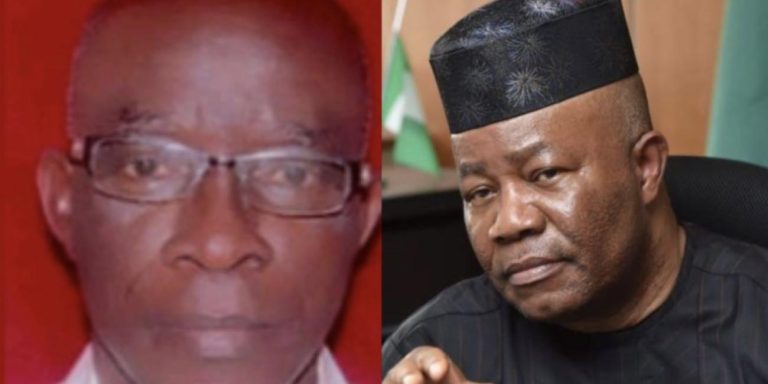
The Court of Appeal sitting in Calabar, Cross River State, has affirmed the conviction and three-year prison sentence of Professor Peter Ogban, who was found guilty of manipulating the results of the 2019 Akwa Ibom North-West Senatorial election.
The verdict, delivered on Wednesday, reinforces the judgment earlier passed by the High Court in Ikot Ekpene, Akwa Ibom State, which found Ogban guilty of electoral malpractice aimed at favouring former Minister of Niger Delta Affairs, Senator Godswill Akpabio.
The appellate court emphasized the gravity of Ogban’s offense, particularly in light of his position as an academic and the ethical responsibility he bore as a returning officer in a critical democratic exercise. The court stated that individuals in positions of trust, especially during elections, must be held to the highest standards of integrity.
Professor Ogban, a Soil Physics lecturer at the University of Calabar, was appointed by the Independent National Electoral Commission (INEC) as the returning officer for the senatorial election. However, he came under scrutiny and was later prosecuted after investigations revealed that he tampered with vote tallies to benefit Akpabio, inflating the former minister’s numbers to the detriment of his opponent, Christopher Ekpenyong of the Peoples Democratic Party (PDP).
Senator Akpabio, who was the candidate of the All Progressives Congress (APC) at the time, has consistently denied any involvement or knowledge of the electoral fraud.
The legal proceedings that led to Ogban’s conviction were a result of the determined efforts of former INEC Resident Electoral Commissioner in Akwa Ibom State, Barrister Mike Igini. His tenure was marked by a commitment to electoral transparency and accountability, which saw the commission pursuing legal action against two university professors accused of falsifying election results—Professor Ogban and Professor Ignatius Uduk.
In a related case, Professor Ignatius Uduk of the University of Uyo was also found guilty of electoral offenses. In February, he was sentenced by a State High Court in Uyo to three years in prison and fined ₦100,000. Uduk served as the returning officer during the 2019 Essien Udim State Constituency election and was convicted for perjury and the announcement of fabricated results.
Uduk’s legal ordeal began in December 2020, when he was arraigned after repeatedly failing to appear in court, prompting a warrant for his arrest in November that year. Despite pleading not guilty to the three-count charge leveled by INEC, his trial was marred by frequent delays, including the collapse he suffered during cross-examination and the withdrawal of his legal counsel.
At one point during the proceedings, Uduk accused the presiding judge of bias and successfully requested that the case be reassigned. However, the Chief Judge of the state eventually returned the matter to the original judge for conclusion.
These two convictions—both involving senior academics—represent landmark cases in Nigeria’s electoral history, signaling a more assertive push by INEC and the judiciary to combat election-related offenses. They also highlight the growing demand for electoral integrity and the need for public officials and election staff to uphold democratic values.
Observers believe these rulings could serve as a deterrent to others in similar positions of influence, sending a clear message that tampering with the electoral process carries serious consequences under the law.





